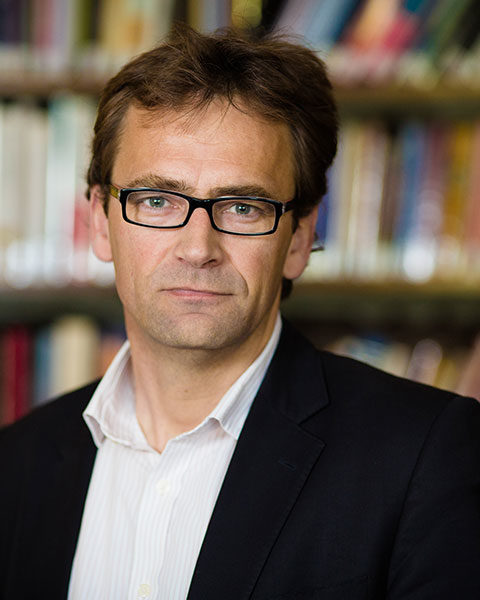
Professor Jim Hall, Commissioner for the National Infrastructure Commission
Jim Hall FREng is Professor of Climate and Environmental Risks in the University of Oxford and Director of Research in the School of Geography and the Environment. Before joining the University of Oxford in 2011 to become Director of the University’s Environmental Change Institute, Prof Hall held academic positions in the Newcastle University and the University of Bristol. Prof Hall is internationally recognised for his research on risk analysis and decision making under uncertainty for water resource systems, flood and coastal risk management, infrastructure systems and adaptation to climate change. Professor Hall is a member of the National Infrastructure Commission and the Prime Minister’s Council for Science and Technology. He is Chair of the Science Advisory Committee of the International Institute for Applied Systems Analysis (IIASA). He was a member of the UK independent Committee on Climate Change Adaptation from 2009 to 2019.
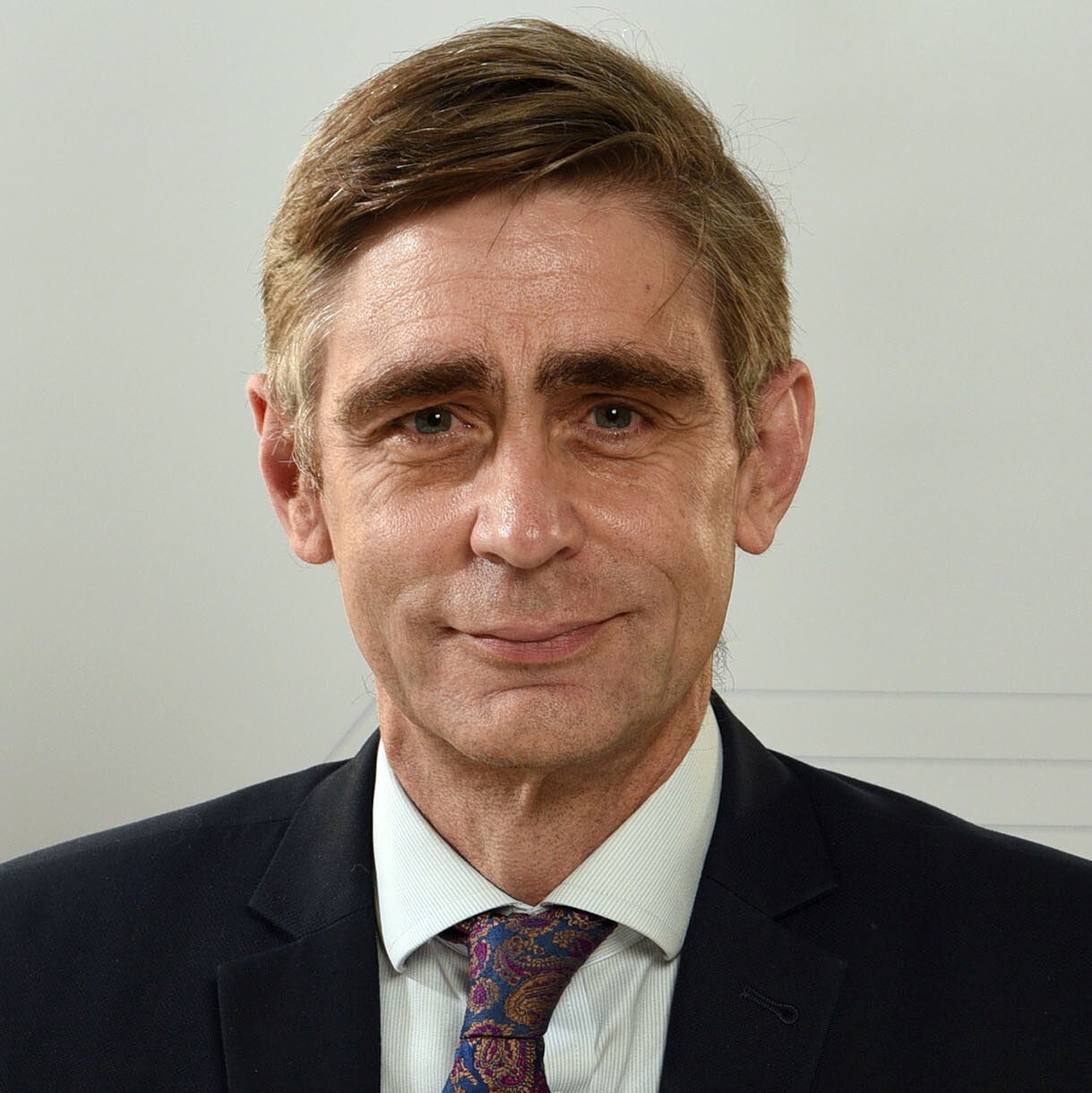
Mark Enzer OBE FREng, Strategic Advisor at Mott MacDonald
Mark is a keen champion of innovation in the context of collaborative delivery models and he is particularly interested in the transformation of the infrastructure industry, including: systems-thinking, digital transformation, connected digital twins, data infrastructure, low-carbon sustainable solutions and the circular economy in the built environment.
As the former Head of the National Digital Twin programme, Mark contributed to the leadership of this ambitious programme to enable an ecosystem of connected digital twins across the built environment. For five years, mark was Mott MacDonald’s Chief Technical Officer and was accountable to the Executive Board for technical excellence across the Group.
As Strategic Advisor for Mott MacDonald Digital Ventures, Mark provides strategy-level advice to key clients on digital transformation, connected digital twins and broader industry transformation.
Mark is a co-chair of the Construction Leadership Council’s Digital Network and he is the Digital Transformation workstream lead for the Infrastructure Client Group, which represents the UK’s major infrastructure client organisations. Mark was the Lead Author of the Infrastructure Carbon Review, published by HM Treasury.

Dr Brian Matthews
Dr Brian Matthews leads the DAFNI and Data Science and Technology Group at Rutherford Appleton Laboratory (RAL).
He has over 30 years of experience in R&D development in computing, with a focus on tools, methods and standards for managing accessing research data from scientific experiments. He took a leading role in the development of the data management infrastructure that supports the ISIS Neutron and Diamond Light Sources, and has worked extensively on European programmes on data infrastructures. He leads the DAFNI team, developing data and modelling infrastructure to support research into national infrastructure, and is Co-Investigator on projects extending its use including OpenCLIM and the UK Centre for Greening Finance and Investment initiative. He is Co-Investigator and Technical Lead on the Physical Sciences Data-science Service, one of EPSRC’s National Research Facilities.
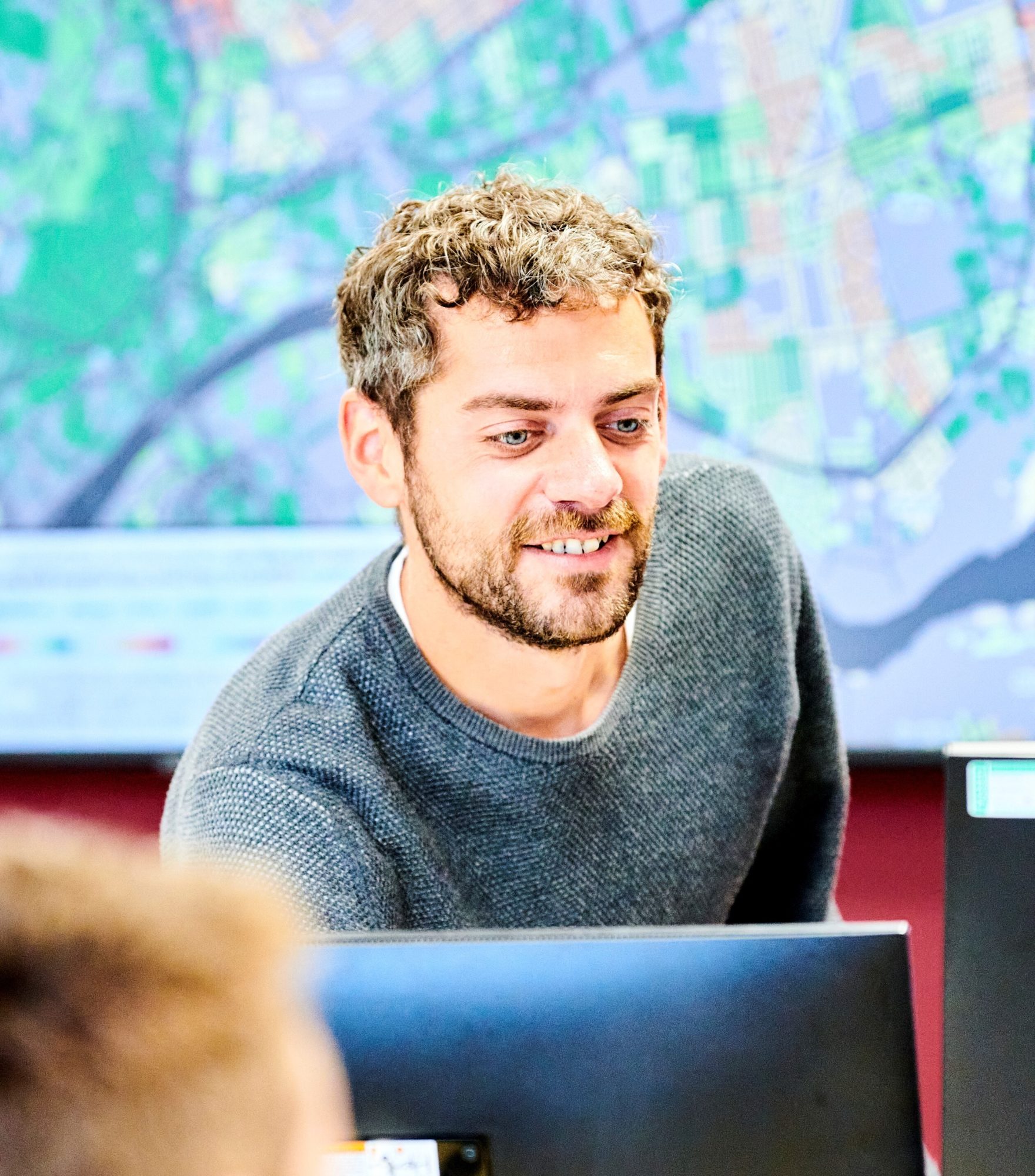
Dr Craig Robson
Craig Robson is a lecturer at Newcastle University within the Geospatial Engineering group (School of Engineering), a member of the Tyndal Centre for Climate Change and is a DAFNI champion. His research interests are across spatial data science, digital twins, the resilience of infrastructure to climate change and spatial data management. Craig is currently a Co-Investigator on the OpenCLIM project where he co-leads on the development, from a technical and data perspective, of a modelling framework for climate change risk and adaptation assessment for the UK. Craig has worked on a number of successful integrated assessment platforms for critical infrastructure analysis and for real-time hazard and risk modelling for flooding in urban areas, using latest technologies and data science methods to reduce risk to climate based hazards; projects such as ITRC, MISTRAL and FLOOD-PREPARED. He has been working with DAFNI for over 4 years and continues to engage with the platform and the team supporting it further development and use.

Dr Jonny Wilson
Jonny Wilson is a senior officer in the Environment Agency, where he leads on establishing in-house capabilities for national water resources modelling, to help support regulatory decision-making processes. His career in the environmental sector began only recently in 2018, when he joined the Environment Agency to work on the National Framework for Water Resources project, which helped set out England’s long-term water needs, and the scale of action required to ensure resilient supplies.
Before joining the Environment Agency, Jonny spent several years working in research and development at a leading consulting firm for oil and gas services, where he created predictive tools for sub-surface exploration using integrated modelling approaches. Prior to this, Jonny started his career in geophysical research at the University of Cambridge, applying inverse modelling techniques to explore how deep earth processes have shaped Earth’s topography over geological time.
Jonny leads a team of modellers who currently support the Environment Agency’s involvement in a national water resources system simulation modelling project, which has been commissioned by the Regulators’ Alliance for the Progression Infrastructure Development (RAPID) and is led by the University of Oxford. The project aims to give regulators independent insight on how effective new large-scale water supply infrastructure schemes are at ensuring security of supply for parts of England that face significant and mounting pressure from population growth, environmental protection, and natural climate variability and climate change.
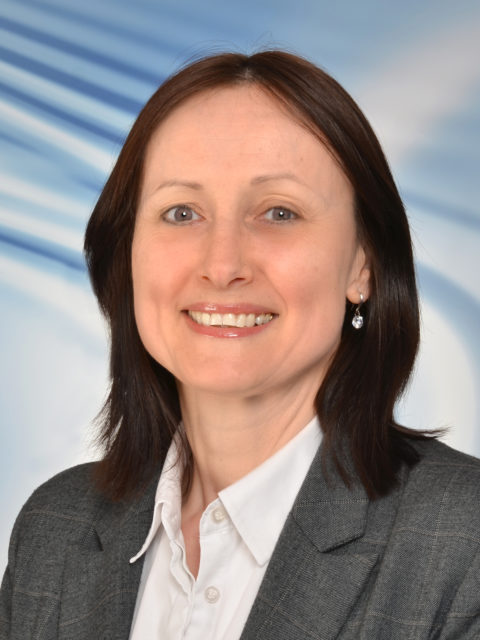
Professor Liz Varga
Professor Liz Varga has a chair in Complex Systems at University College London (UCL), London, UK (2018-). She leads the Infrastructure Systems Institute (UCL) and is section head for Infrastructure and Cities in the Civil, Environmental, and Geomatics Engineering Department (UCL). She is principal investigator for the coordination node of UK Collaboratorium for Research in Infrastructure and Cities (UKCRIC) and is involved in several UKRI funded research projects and departmental teaching commitments. She is publishing actively and has over 60 journal articles on infrastructure systems: energy, transport, telecommunications, water and waste.
She is a regular speaker, reviewer and advisor on infrastructure matters focusing on sustainable innovation, resilience and digitalisation, with a particular focus on the integration of heterogeneous systems, related ontologies and methods. She has advised various organisations on complexity in infrastructure systems including Royal Academy of Engineering, World Economic Forum, United Nations office for Disaster Risk Reduction, and UK’s National Digital Twin Programme (NDTp). Prof Varga is a fellow of the Chartered Institute of Building Engineers (FCABE) and the Higher Education Academy (HEA) and was awarded the Research Prize (Cranfield University) (2014, 2016). She is a commissioner with the National Preparedness Commission and received her Ph.D. degree and MBA from Cranfield University, UK and a first class honours degree from the Open University, UK in pure maths and data analysis.
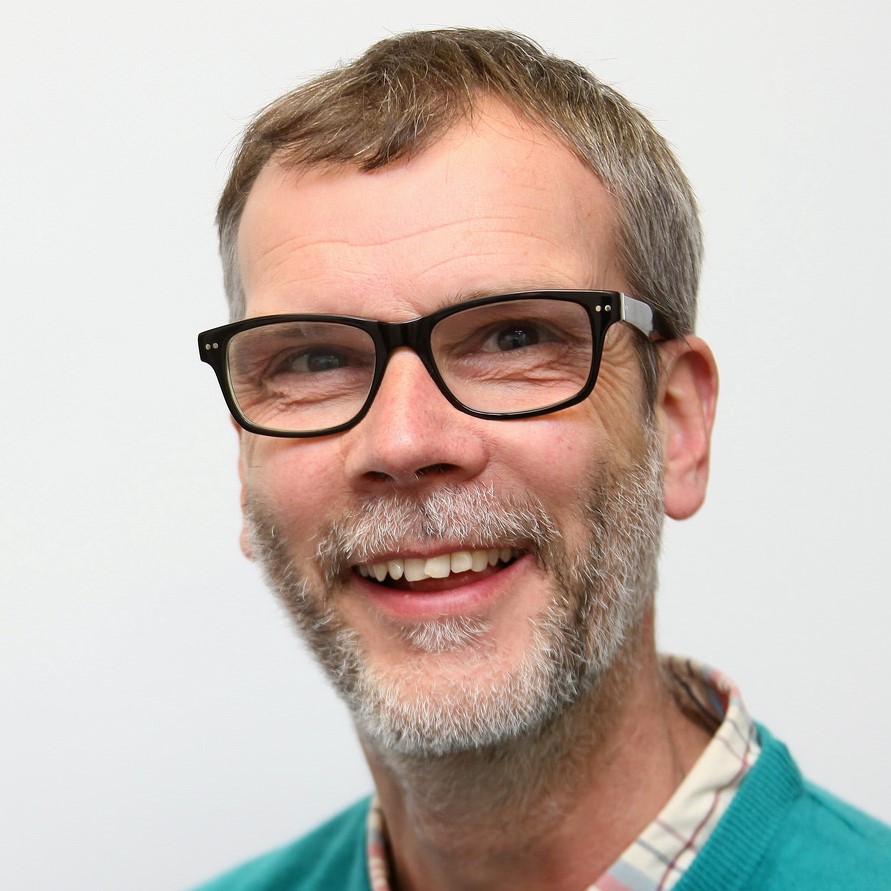
Professor Richard Kingston
Richard is Professor of Urban Planning and GISc, a chartered Town Planner and Deputy Director of the Spatial Policy Analysis Lab at The University of Manchester. He is currently Director of NERC’s 5 year Digital Solutions Programme which is investing £7m in the development of an online platform and set of toolkits that will exploit environmental and other data to create innovative digital services that deliver economic, societal and environmental benefits across the UK. Richard specialises in web-based decision support systems to support spatial decision making from national to local scales and has spent the past 25 years developing, testing and implementing these approaches across Europe. Further details about working with NERC can be found at http://www.digital-solutions.uk/
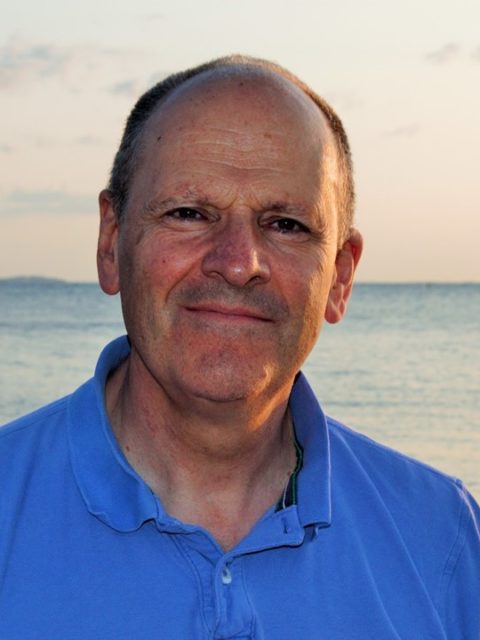
Professor Robert Nicholls
Robert Nicholls is a Professor of Climate Adaptation, School of Environmental Sciences at the University of East Anglia and Director of the Tyndall Centre. He is an expert in assessment of environmental and climate problems, taking an interdisciplinary system approach which facilitates policy analysis. This includes the ITRC/Mistral projects on national infrastructure provision and the CLIMSAVE integrated assessment of climate change in Europe. Much of his work has focused on coasts and climate change. He led the Tyndall Coastal Simulator, the NERC-funded iCOASST (Evolving coastal geomorphic sediment systems), “Coastal landfill and shoreline management”, and “Coastal resilience in the face of sea-level rise projects. He has extensive international experience, especially in coastal cities, deltas and small islands. He has advised national governments (e.g., UK, Netherlands, Bangladesh, Singapore, the Maldives) and intergovernmental organisations (e.g., OECD; World Bank) on climate change and coastal issues. He was a lead author to five reports of the Intergovernmental Panel for Climate Change (IPCC) assessment process. He currently co-leads the World Climate Research Programme Sea-Level Rise Grand Challenge to deliver sea-level science to support better coastal impact and adaptation assessment and is a member of the ASCE/COPRI Coastal Engineering Research Council. Of relevance here, within the UK Climate Resilience Programme he leads the OpenCLIM project which is developing integrated methods for future Climate Change Risk Assessments using DAFNI.

Dr André Neto-Bradley
André is an engineer and data scientist, and has been a Research Associate at the Energy Efficient Cities initiative (EECi) since completing a PhD on modelling energy inequalities in urban India at University of Cambridge. His research interests focus on understanding and modelling the role of socio-cultural context in urban residential energy, as well as the use of data science approaches to characterise barriers and inequality in energy access and decarbonisation – leveraging publicly available data to support local decision making. He has recently started working as a Senior Energy Advisor at the Department for Business, Energy, and Industrial Strategy.

Professor Stephen Hallett
Professor Stephen Hallett. BSc (Hon), MSc, PhD, SFHEA
Chair of Applied Environmental Informatics, Cranfield University
Prof. Hallett’s research focuses on developing the scientific understanding of environmental risks and challenges relating to land resource management in the natural and built environment and understanding the role and opportunity data science and digital technologies offer in addressing research and development. His leadership has contributed to securing significant research funding, with work centring on natural ecosystems, agriculture and infrastructure and understanding the impact of a changing climate. His work draws on expertise in environmental big data, analytics, decision support, GIS/remote sensing, software development, 3D data visualisation, virtual/augmented reality, and geospatial decision-support systems applied across four strategic themes: (1) Agricultural and Environmental Informatics; (2) Soil and Land Resource Management; (3) Geohazards and Urban Infrastructure; and (4) Environmental Risk Mitigation and Climate Change. He is widely published and cited internationally and has supervised many PhD students.
Stephen was appointed one of the NERC Digital Environment Champions within the Constructing a Digital Environment Strategic Priorities Fund programme (www.digitalenvironment.org). He has a responsibility for Cranfield’s Land Information System (www.landis.org.uk), holding the soil datasets for England and Wales, and its international equivalent (www.wossac.com). He is the Director of the NERC Centre for Doctoral Training in big data and environmental risk mitigation, DREAM (www.dream-cdt.ac.uk), Cranfield lead on the NERC Doctoral Training Partnership CENTA, and sits on the governing board of the Data & Analytics Facility for National Infrastructure (www.dafni.ac.uk).
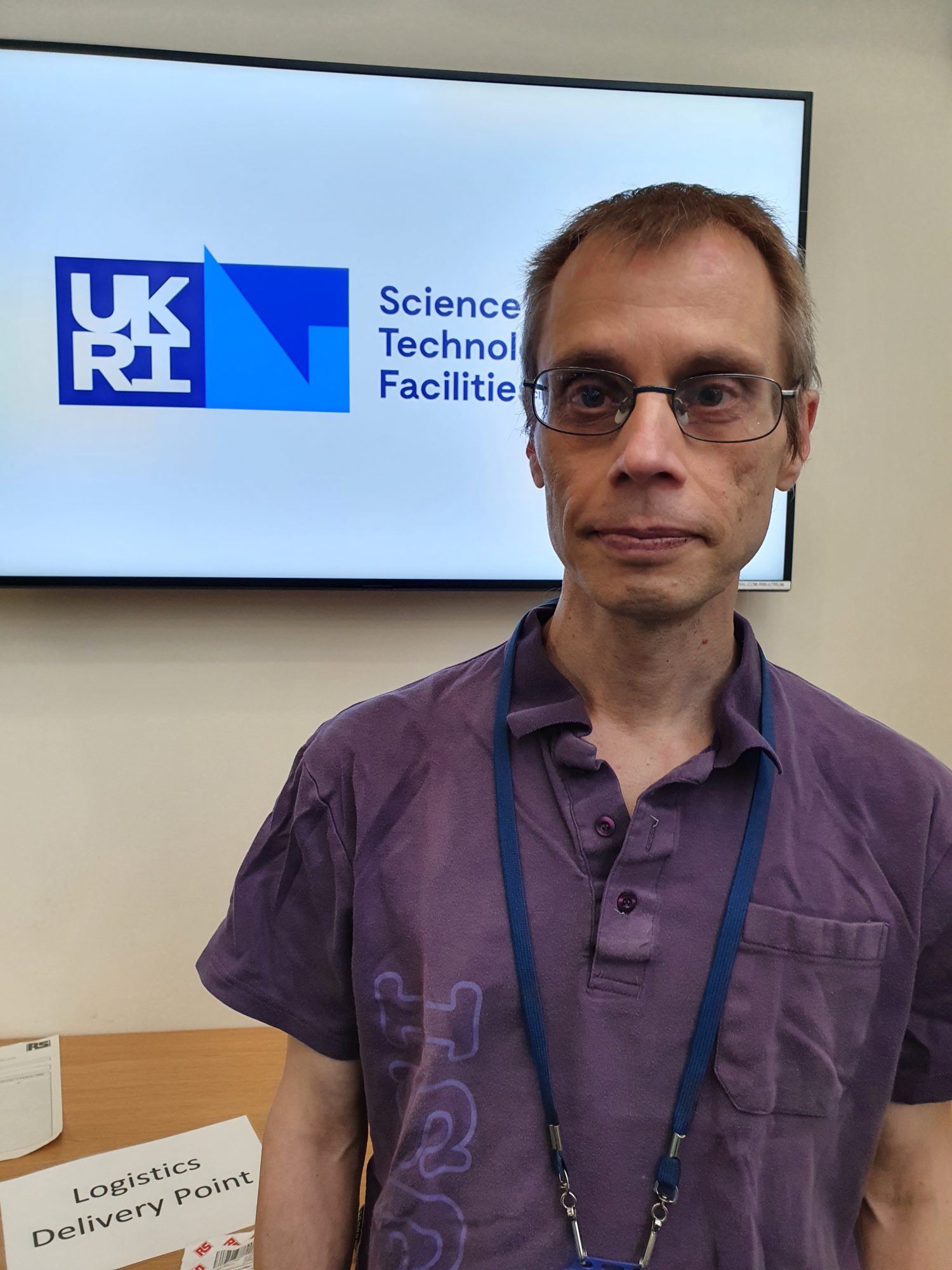
Dr Jens Jensen
Dr Jens Jensen (he/him) is a Mad Scientist in STFC’s Scientific Computing Department. Much of his work so far is in the security that underpins global computational collaborations, such as the Large Hadron Collider computing grid, or, currently, the Square Kilometre Array, ensuring that research infrastructures such as the European Open Science Cloud can interoperate securely with other infrastructures. His recent DAFNI work has included designing and implementing data security for CReDo, a project modelling the impact on flooding on critical infrastructure.

Dr Ben Mawdsley
Ben is a Senior Data Scientist at the Hartree Centre, promoting the adoption of machine learning and artificial intelligence techniques. Working with the experts in their fields, he seeks to find new opportunities for these technologies to solve pressing problems in industrial and academic domains. Ben’s background is in observational cosmology, having completed a Ph.D. using large astronomical datasets to produce maps of dark matter, before moving to the Hartree Centre where he now leads the delivery of projects seeking to extract new value from varied datasets. Examples of his previous projects include using deep learning for analysing satellite imagery, exploring user comments through natural language processing techniques, and developing probabilistic models for signal classification. Most recently, Ben has been working on the CReDo project, leading the implementation of predictive models for asset failure and contributing to the inter-organisational project management that ensured successful delivery.

Dr Jethro Akroyd
Jethro is a research-focused chartered chemical engineer who works at the interface of academia and industry, with experience cutting across multinationals, start-ups and universities. He is a Fellow Churchill College and holds positions at CMCL Innovations, a multi-award-winning SME, and as a Senior Research Associate in the Computational Modelling Group at the Department of Chemical Engineering and Biotechnology (CEB), University of Cambridge.
Jethro has worked extensively with the Cambridge Centre for Advanced Research and Education in Singapore (CARES) to develop solutions to enable the cross-domain interoperability of data and models, with a focus on applications relating to sustainability and the energy transition.
He recently led work by CMCL Innovations to implement parts of the first cross-sector digital twin of energy, water and telecoms infrastructure networks as part of the Climate Resilience Demonstrator (CReDo), which is a climate change adaptation digital twin demonstrator project to improve resilience across infrastructure networks.

Dr Robin Wardle
Robin is a member of the Research Software Engineering (RSE) team at Newcastle University, which he joined in May 2021. In this role he principally works on data and software integration and middleware for scientific research projects, assisting research teams with data management, scientific software development and deployment, software development and management best practice, and producing research outcomes. DAFNI has become an increasingly important tool within the context of these RSE projects as it offers a ready-made platform for integrating research software into a coherent, stable and accessible environment. Robin also teaches research software skills through the Software Carpentries as a qualified instructor, and as a lecturer for the Institute of Coding Degree Apprenticeship course in Software Engineering.
Robin graduated with a BSc and MEng in Electro-mechanical Engineering from Manchester University, and recently completed a PhD in Energy at Newcastle University, during which time he also worked as a researcher in Newcastle University’s School of Engineering on energy systems demonstrator and modelling projects. Many of these projects involved collaboration with the Centre for Energy Systems Integration at Newcastle University and other academic institutions. Prior to his PhD Robin worked at Durham University as a Senior Research Associate and Project Manager on the 4-year interdisciplinary Customer-Led Network Revolution project. He has published a number of journal and conference papers while working in these posts, mostly on the topic of energy systems.
Outside of academia Robin has also worked extensively in industry, principally in scientific and and engineering environments, and has significant project management experience in both industrial and university contexts. He worked for a number of years in the videogames industry as a programmer and producer and was involved in the release of a number of well-known games console and PC titles during this time.
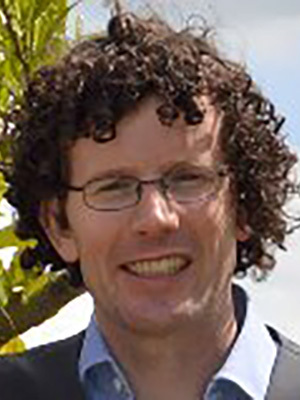
Dr Tom Dolan
Tom is a UKCRIC Senior Research fellow and a Senior Research Associate at the Department of Civil Environment & Geomatic Engineering at ULC. His research has led him to propose and develop a range of novel concepts, new terminology, conceptual frameworks, systemic perspectives and characterisations. Selected examples include:
- The systemic characterisation of National Infrastructure (NI) as an open complex interdependent system comprised of the a) Physical infrastructure networks, b) Governance structures, c) Regulatory frameworks d) Management processes associated with the six economic infrastructure sectors of which it is comprised e) Interdependencies within and between each of the above f) Interdependencies with the Dynamic External Context (DEC) within which it is embedded.
- A conceptual framework, new terminology and systemic perspectives to illustrate the systemic mechanisms through which National Infrastructure simultaneously enables societal and economic activity, supports realisation of socially beneficial outcomes, drives the emergence of undesirable outcomes such as sustainability challenges (i.e. GHG emissions, other polluting emissions and waste streams) and resilience challenges
- The development of concepts related to: Net resilience gain, cascade successes, The climate emergen(t)cy, systemic resilience, resilience challenges, sustainability challenges; with the purpose of illustrating the potentially catalytic role of national infrastructure at the heart of strategic systemic responses to societal and environmental grand challenges

Dr Evangelia Manola
Dr. Evangelia Manola is a Research Fellow at University College London (UCL), Department of Civil, Environmental & Geomatic Engineering. She is working with Professor Liz Varga on Eco-design technical characterisation of mineral-based construction materials with a focus on transport infrastructure projects.
She is a qualified Civil Engineer (MEng., 2012) from Aristotle University of Thessaloniki where she also studied for her MSc. in Environmental Protection and Sustainable Development (2013). She was awarded her PhD at De Montfort University in 2019 which focused on Composite Pavement numerical modelling and distress prediction. Her previous research experience involved working as a KTP research associate investigating the behaviour of bituminous emulsions on a 2 year Innovate UK funded project in a collaboration between Liverpool John Moores University and Colas Ltd.

Marion Samler, DAFNI Partnership Manager
Marion’s role as Partnership Manager for DAFNI, is to lead on the development of a partnership programme for DAFNI and therefore engage with a wide range of academia, government and industry partners. This involves the development of partnership proposals, seeking new case studies to demonstrate DAFNI’s usefulness as well as engaging with researchers who are interested in accessing the DAFNI platform. She has developed the current programme of engagement events for DAFNI and is building sustainability cases for DAFNI’s future funding model. Marion’s previous roles have been within the Higher and Further Education sector. Her previous experience of working as a Project Manager for a Big Lottery project within the education sector across Oxfordshire as well as an Operations Director for a UK based learning technology charity, have been invaluable to the DAFNI project.
